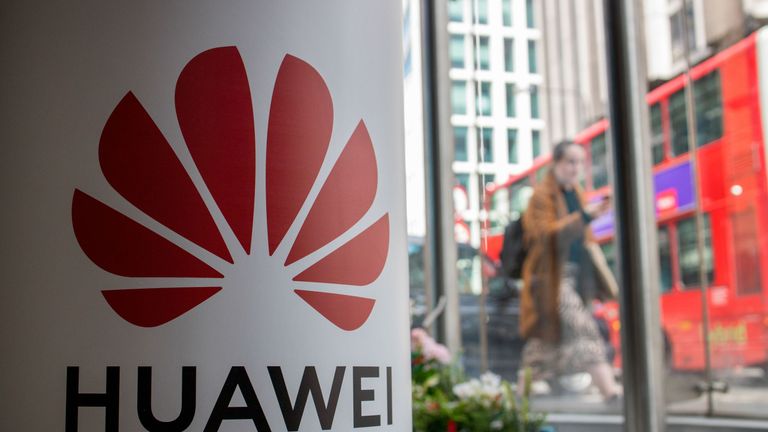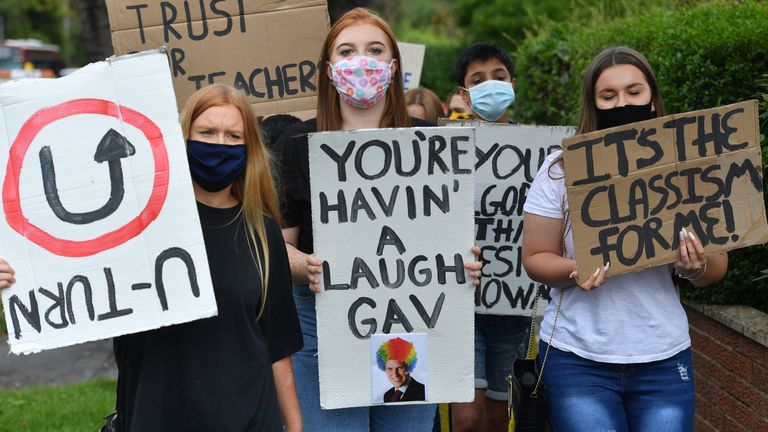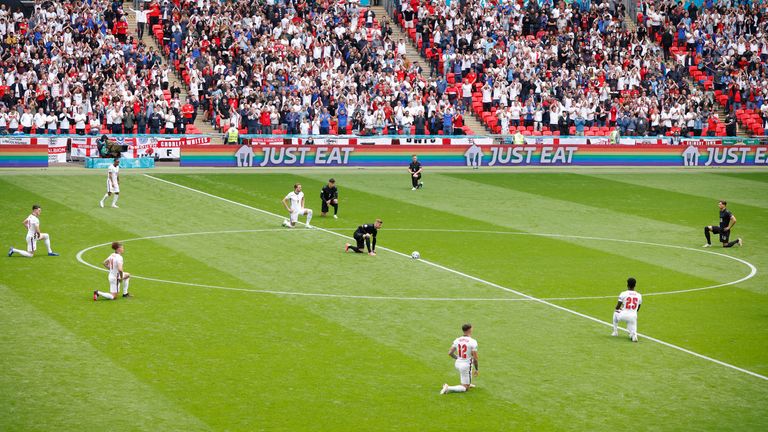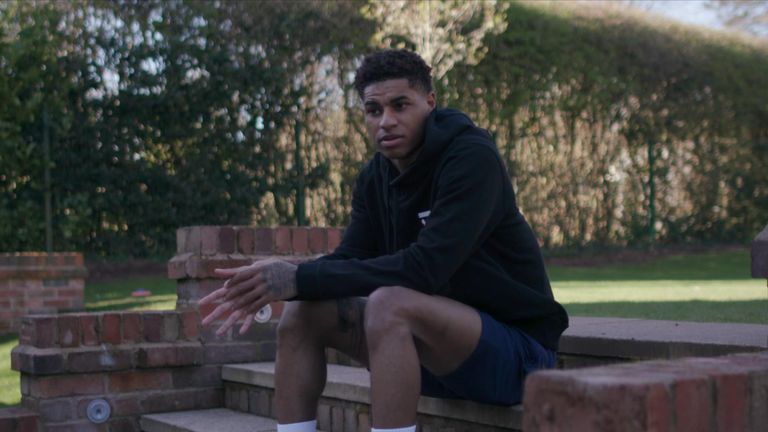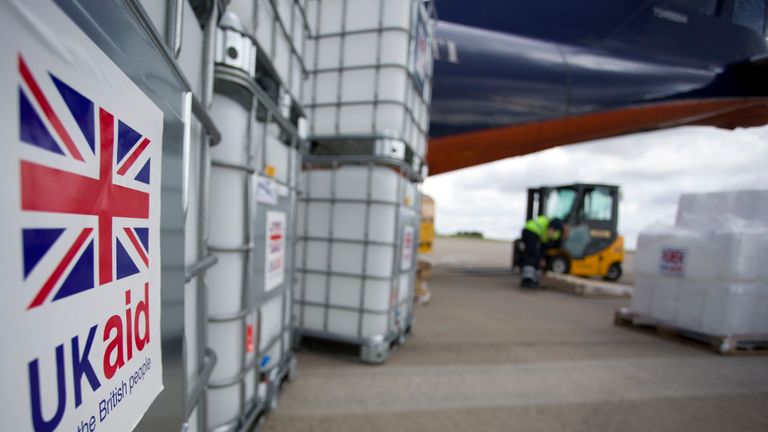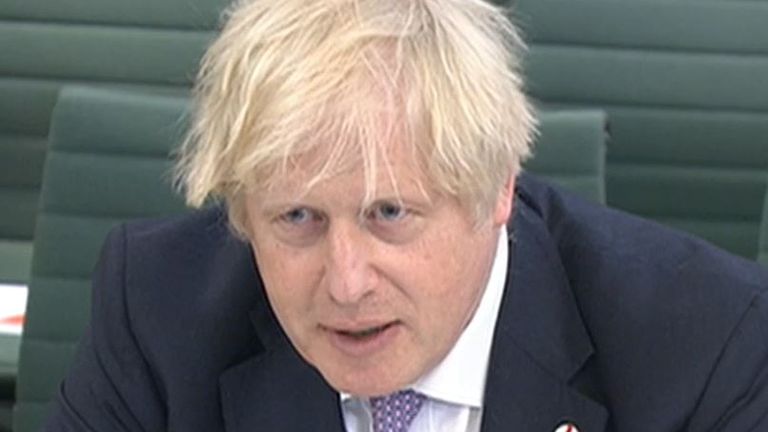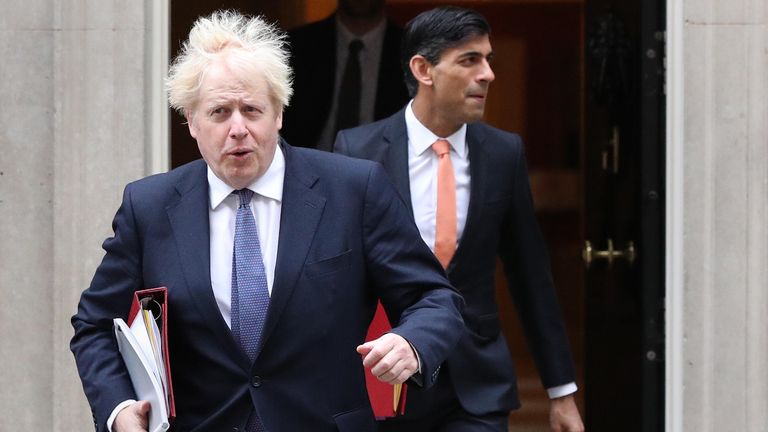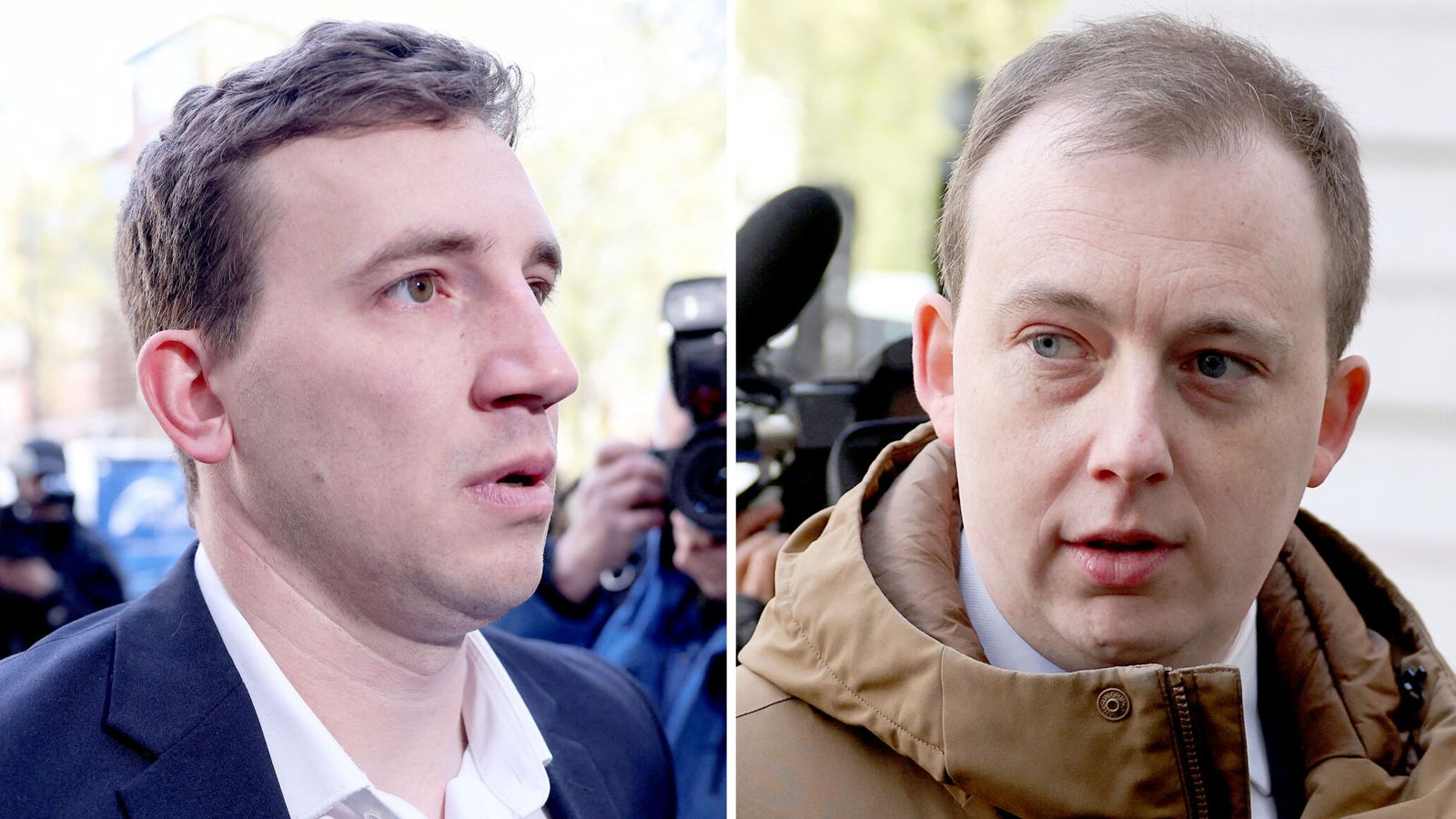Boris Johnson and Rishi Sunak have performed a dramatic U-turn and announced they will no longer dodge self-isolation after a fellow minister tested positive for COVID.
The prime minister and the chancellor performed a full reversal little more than two-and-a-half hours after it was announced they would make use of a Downing Street pilot scheme to escape quarantine.
Their change of mind came after widespread condemnation of the possibility of the government’s two most senior ministers not self-isolating at a time when hundreds of thousands of other Britons are having to do so in similar circumstances as COVID cases surge.
Downing Street’s stance lasted just long enough for the row to be dubbed “Barnard Castle on steroids”, but the U-turn quickly followed.
So, how does it compare to the speed with which Mr Johnson has previously changed his mind?
Huawei
In July last year, the prime minister ordered all Huawei technology to be stripped out of the UK’s 5G network by 2027.
The announcement came little more than six months after Mr Johnson had allowed the Chinese firm to have a role in the UK’s next generation mobile infrastructure.
U-turn speed: Family estate
A-levels results
On 13 August last year, thousands of A-level students in England found their grades had been downgraded by exam boards.
A controversial algorithm used to “moderate” grades in the absence of exams – which had been cancelled due to the COVID crisis – was blamed.
The algorithm was claimed to have disproportionately penalised students from schools in disadvantaged communities.
And four days later – following widespread anger and protests by students – the government announced students would now only be awarded grades predicted by their teachers.
U-turn speed: Formula One
Taking the knee
On 6 June this year, England footballers were booed by some fans when taking the knee prior to a pre-Euro 2020 warm-up match against Romania.
The next day, when asked about the booing, Mr Johnson’s official spokesman said the prime minister “fully respects the right of those who choose to peacefully protest and make their feelings known”.
Asked again about taking the knee, the spokesman said the prime minister was “more focused on action rather than gestures”.
On 11 June, asked why the prime minister had not condemned those who booed players taking the knee, the spokesman said Mr Johnson wanted to see everybody “cheer them on, not boo”.
On 12 June, the prime minister himself told reporters that he disapproved of people booing England players.
Critics have since highlighted the prime minister’s initial equivocation on whether fans should boo players for taking the knee after the racist abuse of some England players following their defeat in the Euro 2020 final against Italy.
U-turn speed: Formula One
Free schools meals
In November last year, the prime minister had a change of heart and announced that government cash would be set aside to feed disadvantaged children during the Christmas holidays.
Ministers had previously stood firm on the issue for weeks and even whipped Conservative MPs to vote against the provision of free school meals.
But mounting public pressure – including a million-strong petition spearheaded by England star Marcus Rashford – saw the government perform a reverse.
It was the second time Rashford’s campaigning had prompted a U-turn on the issue, with ministers previously bowing to pressure to fund free school meals during last summer’s school holidays as the COVID crisis continued.
U-turn speed: Nippy hatchback
Foreign aid
In the Conservative manifesto ahead of the 2019 general election, Mr Johnson vowed to “proudly maintain our commitment” to spend 0.7% of gross national income on foreign aid.
But, less than a year after the Tories’ thumping election victory, Chancellor Rishi Sunak used his spending review to announce the UK’s foreign aid spending would be cut to 0.5% of gross national income.
U-turn speed: Family estate
Christmas COVID rules
On 24 November last year, it was announced up to three families would be allowed to meet together for five days during the festive period under a “Christmas bubbles” plan.
But, 25 days later, the prime minister dramatically announced that the planned five-day easing of COVID restrictions would now be limited to a single day.
And for millions of people in a new “Tier 4” level of lockdown, no mixing with other households would be allowed whatsoever.
Mr Johnson blamed a sharp increase in cases of the Alpha variant (then known as Kent) for his U-turn.
U-turn speed: Nippy hatchback
Matt Hancock’s resignation
When Matt Hancock was revealed to have breached lockdown rules by kissing a departmental aide in his office last month, Mr Johnson accepted an apology from the then health secretary.
The prime minister then considered the matter “closed”, according to his official spokesman.
However, a day later Mr Hancock resigned and was replaced by Sajid Javid.
Mr Johnson then went on to suggest he decided Mr Hancock had to go, subsequently telling reporters: “I read the story on Friday and we’ve got a new health secretary in post on Saturday, and I think that’s about the right pace to proceed in a pandemic.”
U-turn speed: Formula One
PM and chancellor skipping self-isolation
Around 8am on Sunday, Downing Street announced Mr Johnson and Mr Sunak would not be self-isolating despite being contacted by NHS Test and Trace after Health Secretary Sajid Javid tested positive for COVID.
Number 10 said the prime minister and chancellor would instead be tested daily as part of a pilot scheme.
But, little more than two-and-a-half hours later and following a huge outcry, it was announced both now would go into quarantine.
The news came just after Housing Secretary Robert Jenrick had completed a series of TV appearances defending Mr Johnson and Mr Sunak.
U-turn speed: Supersonic

